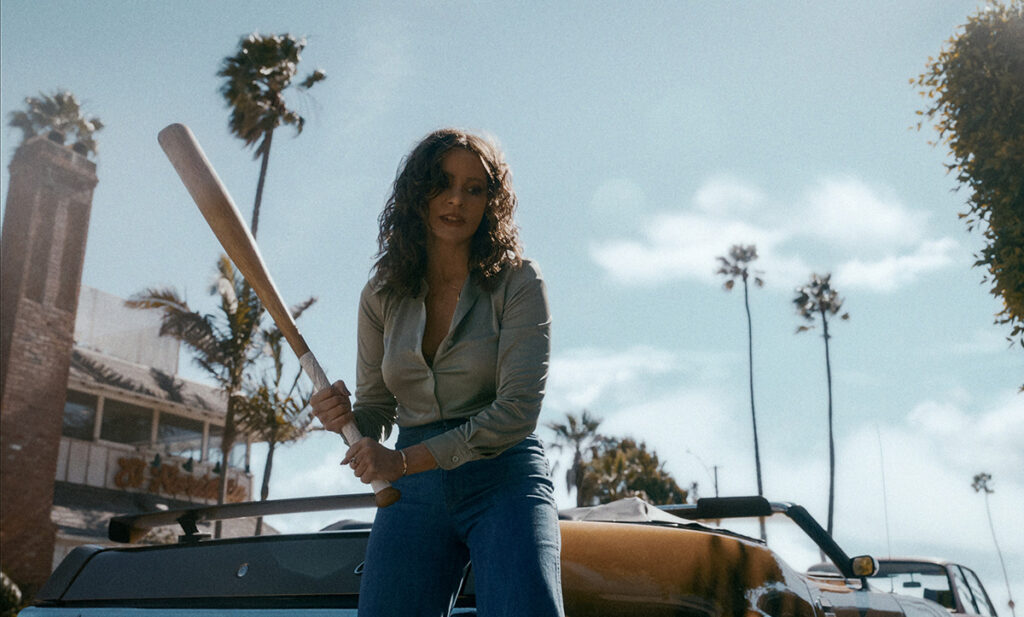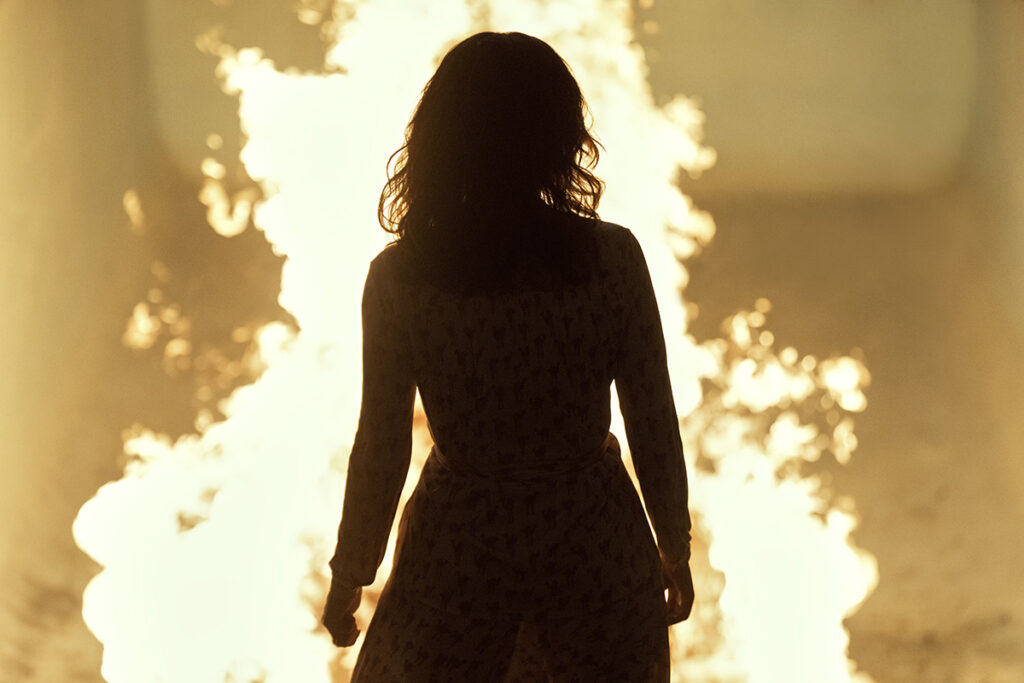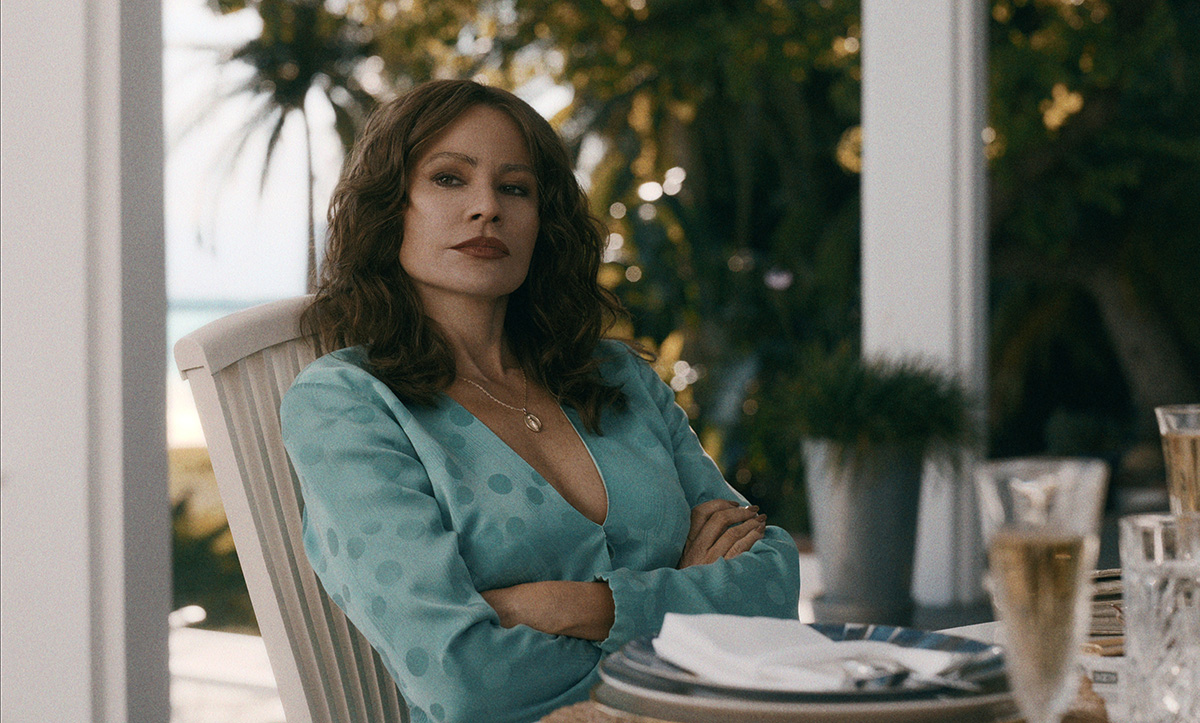In Griselda, Colombian actress Sofía Vergara achieves part of what she intended: to kill off the ghost of Modern Family’s Gloria Pritchett while stepping into the skin of the world’s most brutal and cunning drug trafficker, Griselda Blanco. But the fit is not right, and Vergara conjures up a blood-splattered Evita Peron, not a sociopath who loves sex, death, and lines of coca.
“All of my focus was that people were not going to see Gloria Pritchett. That’s what I wanted people not to see,” Vergara said in a recent interview. “I wanted me to disappear.” Gloria does disappear as Vergara chain-smokes, says “coke” too many times, swings a wooden bat to break some bones, and relishes a kill. Yet, her Griselda is a redrawn outline – more a matriarchal savior of the downtrodden than a ruthless killer.
The Netflix six-part series, produced by Eric Newman and the team behind Narcos and Narcos: Mexico and directed by Andrés Baiz, is the latest iteration inspired by Blanco’s life with more than a serving of poetic license. Set to be released this month, it’s a damn sight better than Lifetime’s The Cocaine Godmother starring Catherine Zeta-Jones and that awful accent. At least it’s a Colombian actress playing a Colombian woman – with the bonus of Medellin-born Karol G as a drug mule.
To create the illusion of Griselda, Vergara sports a prosthetic nose that gives Bradley Cooper’s in Maestro a run for its nostrils, fake buck teeth, bad 70s hair, and matronly dresses. I loved the Jackie O sunglasses, though. But, ultimately, the actress is hemmed in by the “narcos” genre and a stilted say-hello-to-my-little-friend script – the Colombian Spanish dialogue (how many times can you say “berraca?”) being the best part of the whole thing.
I wanted to like Vergara’s Blanco. I tried, but just didn’t find Vergara’s performance “engrossing,” as Variety claimed. She was not convincing enough because she never stopped being Sofía Vergara playing Griselda. Instead, her portrayal conjured up Mexican actress Maria Felix as Dona Barbara or Argentine First Lady Evita Peron speaking to her people gathered at La Plaza de Mayo. It felt like every bad telenovela I grew up watching.
Vergara fails to pierce Blanco’s core, whose real-life story is the stuff of dark crime novels. As the actress said in an interview with CBS, the question is – “How did she become even more ruthless, more horrific than any man?” Blanco grew up surrounded by violence, murder, and instability. From an early age, she dealt with extreme poverty and abuse at the hands of her alcoholic mother and men. To survive, she became a pickpocket, an identity forger, and an underage prostitute.
Was this the root cause of her brutality? Who knows. The fact is Blanco was savage. She had no qualms about killing children, loved the drive-by motorcycle hit, and fashioned a unique way to smuggle cocaine in the bras, girdles, and shoes of pretty girl mules.

She littered Miami and New York with corpses to become the OG Narco Queen of the 70s and 80s. Feared by the Ochoa cocaine family, Medellin cartel, and narco Pablo Escobar, Griselda went by the nicknames La Madrina (The Godmother), The Black Widow, and the female Al Capone. “The only man I was ever afraid of was a woman named Griselda Blanco,” Escobar allegedly said. It’s the quote that opens the six-episode series and sets the stage.
The first episode – The Lady Comes to Town – starts in Medellin, Colombia, where Vergara shoots her then-husband dead, flees with her three sons to Miami, does a deal with a stolen kilo of cocaine, and ends up – as Vergara’s character says – “a housewife covered on blood.”
Vergara and the writers lean heavily on the motherhood angle. Griselda is served up as a matriarch who turns into a barbaric killer to protect her family and her children. But that’s hard to believe because Blanco dispensed (violently) with her three husbands and introduced three of her four sons, the youngest named Micheal Corleone Blanco, to the drug trade. All but Micheal were eventually killed.
After the first shoot-out, we watch Vergara evolve from Narco Barbie in a bad dress into a matriarchal killing machine. The arc in the remaining five episodes is frenetic – especially Middle Management and Paradise Lost – but formulaic. There are too many scenes of oily drug kingpins with bad mustaches in Miami mansions surrounded by hitmen, scantily clad women, kilo after kilo of cocaine, and a lot of blood.

Yet, I did find moments when Vergara’s acting seems to take off – mainly when she first addressed the Marielitos, the Cuban emigres in Miami that became her army. “When we are done with all of this shit, you won’t be washing the fucking dishes of the rich,” Vergara as Griselda says. “You will be sitting at that fucking table eating their lobster.” I thought, yes, okay, maybe she will inhabit the monster.
But the producers pushed it and killed the momentum. During the scene where a mountain of cocaine is burned in an empty pool, Vergara’s acting smacks of a gesticulating Evita rallying her descamisados. “We’re not done until these bastards are on their knees begging us to stop,” Vergara says, before dramatically throwing a lit cigarette into the cocaine pile.
I was hoping they would stop because, in that moment, Griselda ignites into a third-tier telenovela. And it’s a shame because I believe Vergara has the chops to dig deeper and inhabit a meaty role like Griselda Blanco.
I wish the writers had also fleshed out the story of Detective June Hawkins (who never existed in real life) as the good cop who fights her own battle against men who belittle her. She ends up being the one to arrest Griselda finally. “It bothers you, doesn’t it,” Hawkins says to Vergara as they are riding in the cop car after Griselda’s arrest. “After you beat all those men, some bitch caught you.” Now, that’s a line I can live with.

